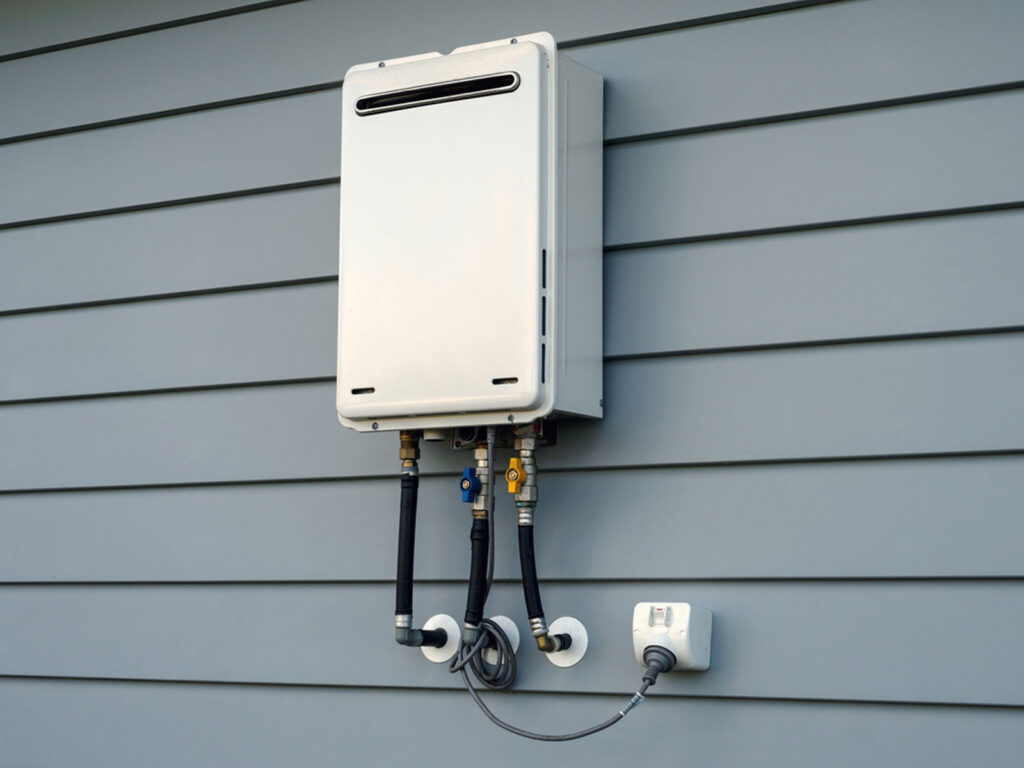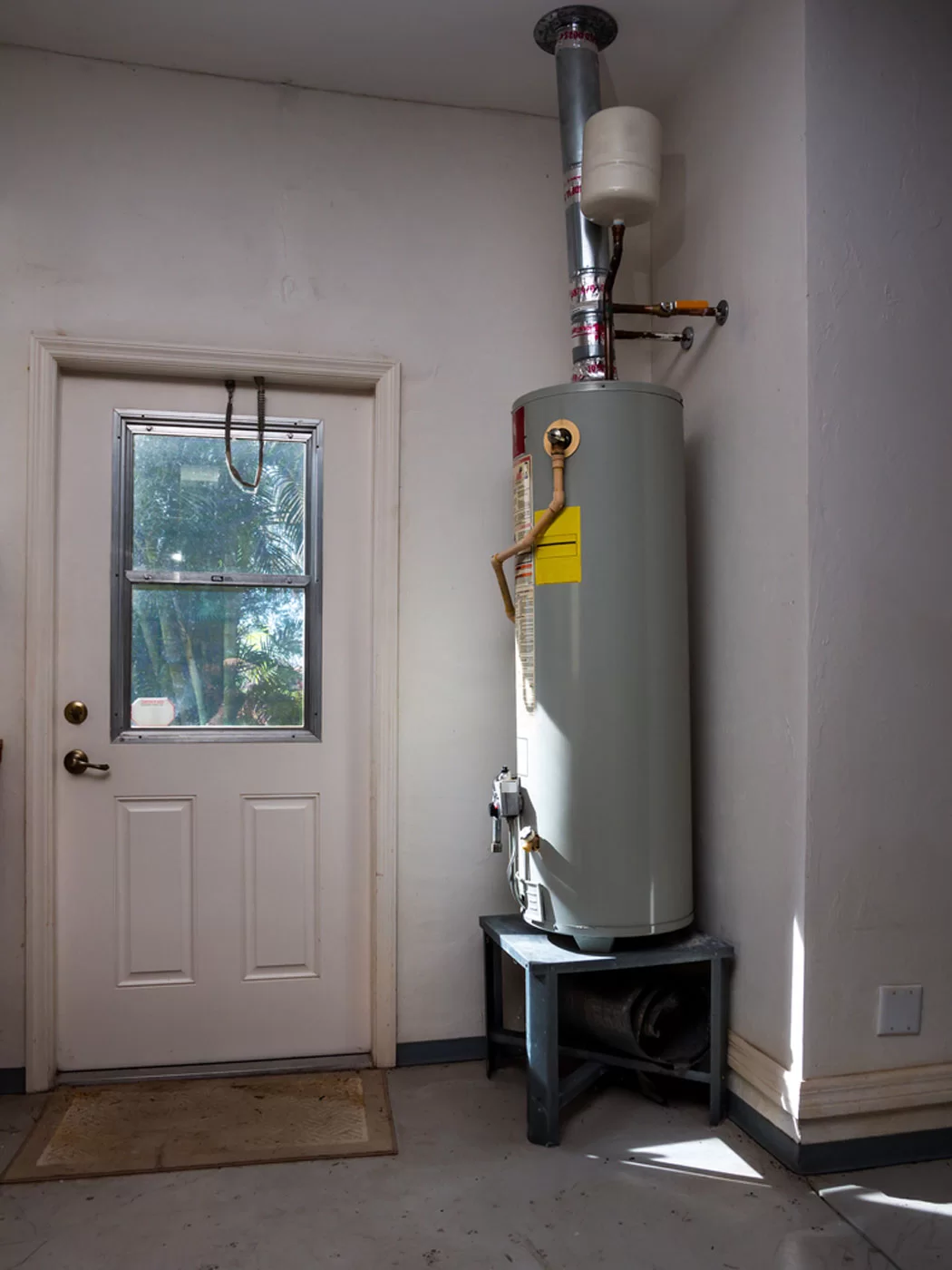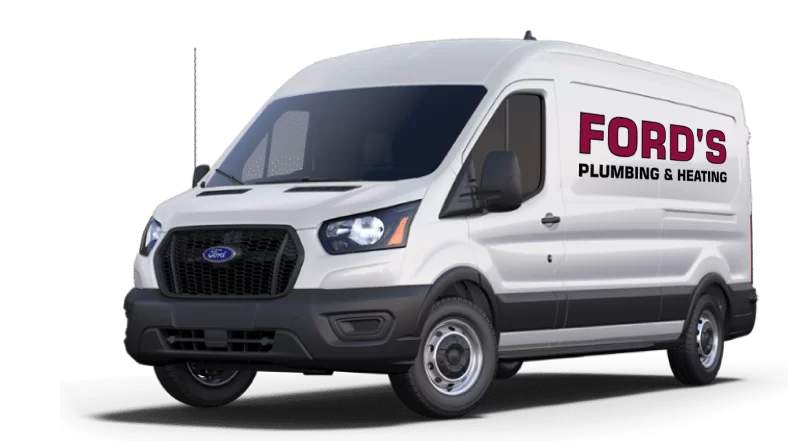The water heater in your home is an essential appliance that provides hot water for various daily activities. Like any other device, it has a finite lifespan, and knowing when to replace it is necessary to avoid unexpected disruptions. We will discuss the factors that determine when to replace a water heater, how long do hot water tanks last, maintenance history, signs of wear and tear, and the considerations involved in purchasing a new one.
How Often to Replace a Water Heater
Understanding the typical lifespan of a water heater is the first step in determining when to replace it. The average lifespan varies based on the type of water heater:
- Traditional Tank Water Heaters: These are the most common type and typically last between 8 to 12 years. Regular maintenance can extend their lifespan, but they will eventually wear out due to constant heating and cooling.
- Tankless Water Heaters: Tankless or on-demand water heaters generally have a longer lifespan, ranging from 15 to 20 years. The design of tankless water heaters makes them particularly durable, eliminating the constant use of energy to keep a large tank of water hot.
Your Water Heater’s Maintenance History
Regular maintenance is essential for extending the lifespan of your water heater. If you have kept up with maintenance tasks, such as flushing the tank, checking the anode rod, and inspecting for leaks, your water heater is likely to perform more efficiently and last longer.
However, if your water heater has a history of limited maintenance, it might experience premature wear and malfunction. In such cases, even if the unit hasn’t reached its typical lifespan, the lack of proper care could require replacement.
What to Look For When Determining Replacement
Several signs indicate that your hot water heater may be nearing the end of its service life. Pay attention to the following indicators:
- Rust and Corrosion: Rusty water or corrosion on the tank are clear signs of an aging water heater. Once rust permeates the tank, it’s challenging to repair, and replacement becomes more likely.
- Reduced Efficiency: If your water heater is struggling to heat water as efficiently as it used to, it may be a sign that components are wearing out. Reduced efficiency leads to higher energy bills and longer wait times for hot water.
- Leaks: Water pooling around the base of the water heater is a serious issue. Leaks can damage the unit and surrounding areas, leading to mold and structural damage. In some cases, leaks may be repairable, but extensive or recurrent leaks may necessitate replacement.
- Strange Noises: Popping, banging, or rumbling sounds inside the tank could indicate sediment buildup. While flushing the tank can address this issue, excessive noise over time might signal the need for a replacement.
When Repairs Are an Option
Not every issue requires replacing the entire water heater. Some problems can be addressed through repairs, especially if they are identified early. Here are a few scenarios where repairs may be possible:
- Faulty Thermostat: If the water isn’t reaching the desired temperature, the thermostat may be malfunctioning. Replacing the thermostat is a relatively simple and cost-effective repair.
- Faulty Pressure Relief Valve: A leaking or malfunctioning pressure relief valve can be replaced without replacing the entire unit.
- Sediment Buildup: Flushing the tank to remove sediment is a routine maintenance task that can restore efficiency and prevent further damage.
- Minor Leaks: Small leaks from fittings or valves may be repairable. However, extensive or recurring leaks are often signs of more significant issues.
How to Buy a New Water Heater

When the time comes to replace your water heater, several factors need consideration to ensure you choose the right unit for your needs:
- Type of Water Heater: Decide whether you want a traditional tank water heater or a tankless model. Each has its advantages, such as constant hot water with a tankless system and lower upfront costs with a traditional tank.
- Size and Capacity: Consider the size and capacity of the water heater based on the needs of your household. Factors such as the number of occupants and peak usage times influence the required capacity.
- Energy Efficiency: Look for a water heater with a high energy efficiency rating to reduce utility bills. Energy Star certified models are designed to meet strict efficiency standards.
- Fuel Source: Water heaters can be powered by electricity, natural gas, propane, or solar energy. Choose a fuel source that aligns with your preferences and availability in your area.
- Warranty: Consider the warranty offered by the manufacturer. A longer warranty period can provide peace of mind and may indicate the manufacturer’s confidence in the product’s durability.
- Installation Costs: Factor in the installation costs, especially if you’re switching from a tank to a tankless system, as the installation requirements may differ.
- Professional Installation: While some homeowners may opt for DIY installation, hiring a professional plumber ensures that the unit is installed correctly and meets local building codes.
Replace Your Water Heater from Ford’s Plumbing & Heating
Knowing when to replace a water heater is a mix of understanding its lifespan, monitoring its condition, and addressing issues promptly. Regular maintenance is necessary for extending the lifespan of your water heater, but when signs of wear and tear become apparent, you should consider replacing it.
Whether you opt for a traditional tank water heater or a tankless model, make informed decisions based on factors such as capacity, energy efficiency, and installation costs. If you’re uncertain about the best course of action, consult with the professional plumbers at FORD’S who can assess your current water heater, provide guidance on repairs versus replacement, and ensure the new unit is installed correctly.
By staying attentive to your water heater’s condition and making informed choices, you can enjoy reliable hot water for years to come, while minimizing unexpected disruptions and potential damage to your home.



















